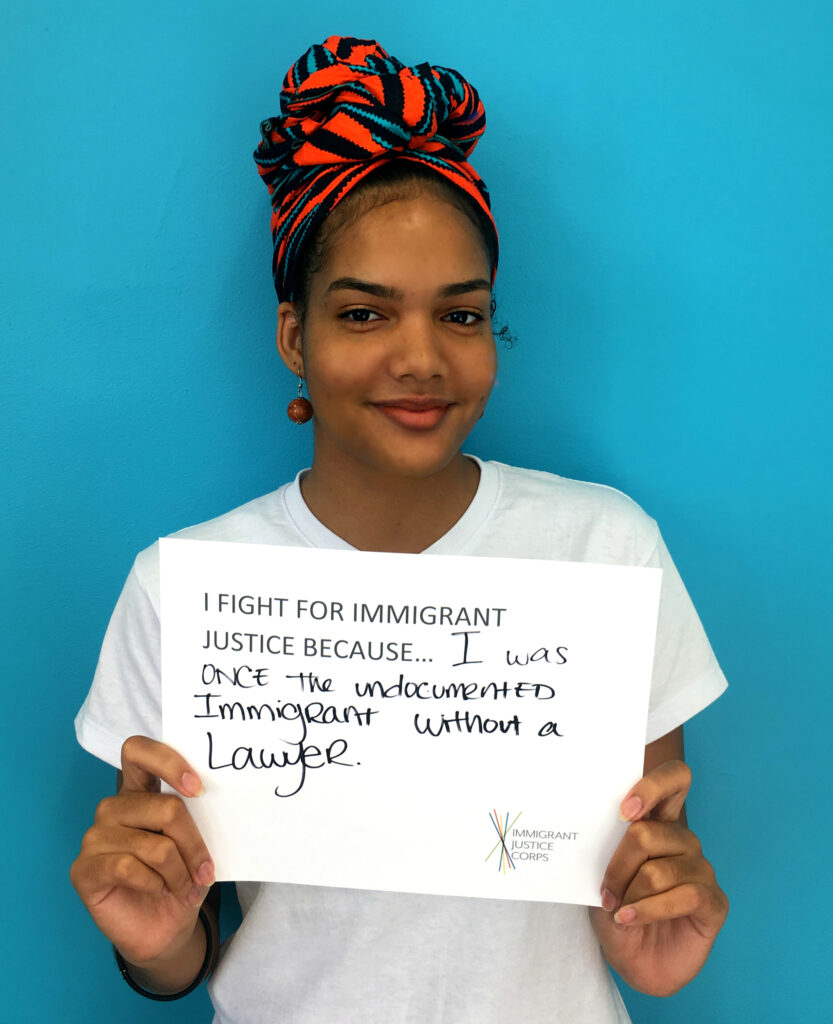Where are they now?: Jonathan Campozano
In the “Where are they now?” series, we introduce you to former IJC Fellows and share their stories — how they became a Fellow and how their Fellowship experience informs their work today.
Jonathan Campozano, a 2017 Justice Fellow with Empire Justice Center, is a Senior Staff Attorney at Neighbors Link in Ossining, NY. Below, Jonathan reflects on what brought him to immigration law, how he felt starting his Fellowship eight years ago, and the impact that therapy has made on his work.
Why did you want to work in immigration law?
My father came to the United States from Ecuador, and my maternal grandparents came to New York from Puerto Rico. Since my mom had access to her parents and my dad didn’t have access to his mom, many of my summer vacations were in Ecuador.
I started to understand why we were going to Ecuador so much, why my family just couldn’t come and visit, and gaining interest into how immigration played a role in how often I could see or not see my family.
As I grew up and understood the system more and more, I also saw friends and their family members dealing with different issues with immigration.
When I went to college, I did a few internships at different law offices, focused on tax law and adoption law. While they were interesting, I didn’t feel a spark or connection until I did an internship at an immigration law firm, where I ended up working my three years of law school.
Once I worked at the immigration firm, it was like, ‘okay, now I can visualize it, and not just have an interest in it.’
That’s what drew me to immigration, the personal, and then later on, the professional.
What was the most memorable day of your Fellowship?
Definitely the orientation. I think it was very exciting to be in a room with other recent graduates, from frankly, much more prestigious law schools than I went to, or even colleges. I went to SUNY Westchester Community College and SUNY Purchase after that, and to be in a room with people that graduated from Harvard Law School, Columbia Law School, it was definitely an exciting moment for myself.
In Spanish, there’s a saying, ‘tú a tú,’ basically, on the same playing field. The orientation was an ‘I made it’ moment, like I deserved to be there.
What is something you’ve struggled with while working in the immigration law space?
During the Fellowship, we traveled to Dilley, Texas to the detention centers out there, and we volunteered for a week, every day from 7 a.m. to 7 p.m.
It’s one thing when you hear a client’s story when they’re a few months or a few years removed from the trauma that they suffered. They give you a much more summarized version of what happened.
But when we were meeting with the mothers and children in Dilley, what they were going through could have happened earlier that week or the week prior. The details were much stronger in terms of trauma, and they were able to be much more detailed explaining what happened to them because it was so recent.
As time went on, after I left the Fellowship, I realized, I’m not sure what the correct term is, if I was desensitized, but I just felt like I had less sympathy for others when they would share their own stressors.
I ended up going into therapy to address that and understand that everyone’s stress, everyone’s struggle – everything is subjective. What could seem small to one, could be huge to another, and vice versa.
Today I had a consultation day, and I heard about horrible things that happened to those individuals while here in the US. It’s difficult because you want to talk with your colleagues, but you also don’t want to dump that on them. Therapy is definitely something that helps manage that, because sometimes you’re so used to hearing it, you don’t even realize whether or not it’s affecting you.
